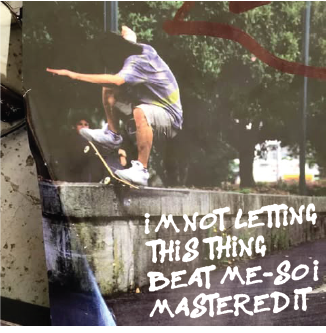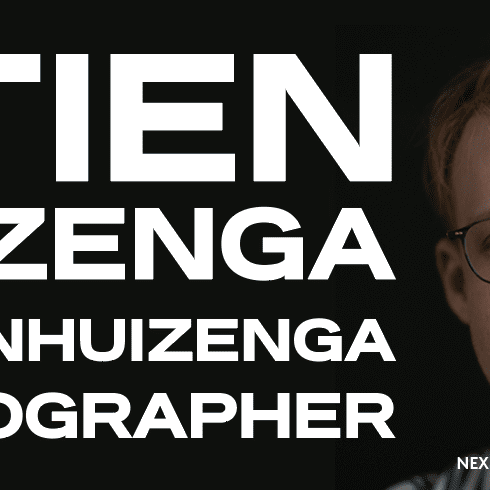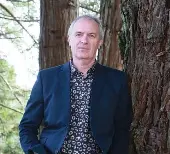Interview: Rimu Bhooi
Tell us a little about yourself?
Nō Pākeha me tau iwi ahau. He Tangata Tiriti ahau. Ko Lawrence o Te Papaioea tōku hapu
Ko Bhooi o Kartarpur tōku hapu. Nō Inia me Kōtirana me Aerana ōku tūpuna.
Nō Te Papaioea ahau. I tipu ake au ki Īnia. E noho ana au kī Kirikiriroa. He ākonga ahau i Te Whare Wānanga o Waikato.
I’m Pākeha and tau iwi, of Indian, Scottish, and Irish heritage. I come from Palmerston North and grew up in India. I’m a second year student, specialising in languages and linguistics.
I have first-hand experienced the broken systems of Aotearoa and had to fight to access the basics: healthcare, housing and education. I’m running to better represent my communities in parliament; the lifelong renters, the struggling students and the people rising up to fight the status quo.
I have a history of volunteering and activism, and bring a huge range of lived experiences to any table, from supporting indigenous sovereignty and climate justice movements, to leadership roles in my communities. I’ve been a minimum wage worker for retail, customer service, hospo, managed campaigns and advised on social media. As a queer, disabled young woman of colour, I know that the system is built against us. I’m here to enact as much change as I possibly can; for all of us.
What are three interesting facts about you that have nothing to do with politics?
I have an obsession with hot sauce so hmu with recommendations.
Surprisingly, I’ve killed every plant I’ve ever had.
I love creative writing! I won my high school’s award for it, and am published in Awa Wahine magazine.
Why do the Green Party tend to have students campaigning in their electorate seats? Is it because they don’t expect to win the electorates?
Students have always been at the centre of progressive movements. South African students changed their very constitution and helped end apartheid, and in Aotearoa, we protested as well, against the Springbok Tour. Just last year millions of young people all across the world striked and campaigned for climate action. There’s a lot of young people who know what’s up. We know that the status quo doesn’t exist to serve us or our needs. There’s a few of us running with the Greens this year but not all of us are students, some are small business owners, others are activists, and some even hold down part-time jobs. These candidates represent youth everywhere – diverse, intelligent and bold.
How do you maintain being both a student and a candidate?
Limited Full-Time Study! If you’re on a student allowance like I am, and have a medical condition, illness etc you can apply to study part-time and receive your student allowance.
It took me a while to figure out that tertiary study can be quite elitist and disable students who need extra support. The Accessibility Services have helped me a lot, and I highly recommend anyone who needs extra awhi to go chat to them.
I also want to acknowledge I’m a scholarship kid. There’s so much stigma that comes with the financial support the Uni gave me… but honestly, I wouldn’t be pursuing my passions without it. It is infuriating that I had to lay out my intergenerational trauma, disabilities, and circumstance to be able to pursue tertiary education without a loan. I’m taking all the support I’m offered so I can fight for free and widespread access to education for all.
We just want to ask you about some of the specific green policies now in relation to student impact:
Tell us about the GMI and how that impacts students?
We’ll create a base payment of $325 for every adult not in full time paid work, in a simplified system that puts income support first for anyone who needs it. Under this policy there will be no stand-down periods, no deduction of child support, and no punishments. This will go together with a fairer approach to deductions with increases in income, so people can earn a little from some part time work or have partners who work. This GMI will replace the student allowance, providing financial independence and security for students.
Persistent and structural inequalities are driven by unequal wealth. More and more of us are renting, and 43% of adults in Aotearoa do not own a home. Investment property is severely undertaxed and encourages people to funnel money into real estate instead of into productive businesses that create jobs. This contributes to housing market inflation, making it harder for students to have homes and live good lives. A net wealth tax will help create a more balanced economy and a broader base for the tax system. By taxing wealth fairly AND creating a GMI that is actually a liveable amount, we can start to address wealth inequality.
What are some key environmental policies?
By 2030, Aotearoa can generate 100% of the electricity we need from clean, renewable sources. The work required to achieve that goal will create thousands of jobs. Some of the environmental policies I love include our commitment to –
Commit to a Just Transition approach, working with affected communities, businesses, and unions to create good, sustainable new jobs.
Enhance Predator Free 2050 by increasing funding for research, innovation, and landscape predator control; and by establishing more protected and pest-free islands and sanctuaries, including in our towns and cities.
Create a fair system for water allocation, with commercial users like water bottling companies paying a resource rental fee, and allocation phased down to sustainable levels. Iwi and hapū will be involved in designing a framework that recognises te mana o te wai Māori interests, prioritises ecological integrity, and protects food production
Work with local government, iwi, hapū and communities to increase resilience and plan for the changing climate, especially in coastal areas.
Seek to finalise negotiations on the Global Ocean Treaty, and reform and replace relevant legislation in Aotearoa to enable a network of Marine Protected Areas that recognises te Tiriti o Waitangi rights and responsibilities.
Continue to invest in waste reduction and community initiatives, encouraging the recovery, reuse, redistribution, recycling, and reallocation of materials. Through careful planning and a clear vision, we will create a sustainable and circular economy.
Your party more than others seems to be more realistic around the possibility of generational homeownership being out of reach, with that in mind, tell us about the Rental policies? As a follow up while the policies may be solid what about the powers a landlord has. I know other Māori who have had to change their last names just to get a rental property.
It’s absolutely cooked that landlords have so much power in the renting market and it just isn’t okay when people are going without homes and trying to survive in flats that just aren’t liveable. There is racism in this area, just like every other and we need to make it fairer across the board by introducing registration for landlords, licensing for property managers, and raise
standards for university accommodation providers.
This term we’ve had wins in housing like the Healthy Homes Standards for rental insulation and heating, changing laws to protect housing security for renters, building thousands of new public homes to high standards of warmth and energy efficiency, and introducing a progressive home ownership programme to help more people buy their own homes.
In the next term of government, we have a comprehensive plan for community-led housing
redevelopment, to transform housing in Aotearoa. Our Homes for All Plan will help get everyone the warm, dry home they deserve so they can put down roots in their communities, regardless of whether they rent or own.
1) This plan will deliver enough affordable housing to clear the social housing waitlist in five years, while upgrading existing homes.
2) It empowers Community Housing Providers and iwi to create a non-profit rental sector which offers people who rent long-term security.
3) And it builds on the Progressive Home Ownership scheme to help low-income families buy a house if that’s what they want to do.
Everyone has the right to decent housing. The wellbeing of people, whānau, and communities starts with warm, dry, affordable homes. So many of us are still paying too much for cold, damp houses that make us sick, with limited options to improve our situations. We have the solutions, we just have to invest, for people and whānau.
What are the Greens views on education and tuition?
We know that upskilling and pursuing passions creates meaningful change in communities, we believe in supporting everyone to reach their potential. The Green Party has fought hard this term for greater student support and free mental health services. We’ve triggered a Select Committee Inquiry into unfair and inconsistent practices by student accommodation providers. We have championed universalising the student allowance and reinstating postgraduate student allowances. Aotearoa’s tertiary education institutions have been compromised by decades of corporate behaviour that has prioritised profit over education as a public good. Successive governments have systematically devalued education and its critical contribution to the vibrancy and progress of our communities. Those who teach and research at Aotearoa’s tertiary institutions are often not recognised for the work they do. We know that a flourishing tertiary education sector is well-resourced, innovative, responsive, and accessible to students. Its institutions reflect the diversity of Aotearoa and champion mātauranga Māori. I’ve picked some of my favourite policies below but there are so many more!
Fund arts, culture, and creativity in schools, including supporting the Creatives in Schools programme.
Protect and further support student media, Māori media, and Pasifika media
Train thousands of people for clean energy careers with a Clean Energy Industry Training Plan, developed with the energy industry, training providers, and unions.
Boost science funding and simplify the grant process so innovators can do what they do best.
Reform student loans to make repayments more progressive and with a higher threshold before you have to pay (the less you earn after you graduate, the less you have to pay).
What about the Drug and End of life choice referenda?
The Green Party supports evidence-based, compassionate drug law reform that reduces harm. We support a “yes” vote in the referendum to legalise and control cannabis. It’s time to regulate the sale and use of cannabis in Aotearoa, because the current approach hasn’t worked to minimise harm. Drugs are a health, housing, employment, and education issue. Criminalising people doesn’t solve any of those problems. Both legal and illegal drugs can cause harm, especially if used to excess or at a young age. Our social and legal response can either increase or decrease that harm. We know prohibition fuels organised crime and causes far more damage than it prevents. Many people in Aotearoa use cannabis, but a lack of sensible regulation means people put their lives at risk by using substances of unknown potency from unknown sources.
The Green Party believes that New Zealanders who have a terminal illness should be able to choose the way their life ends in a supported and open way, to have dignity at the end of their life, provided there are very clear safeguards. We recognise that this is a very personal and sensitive issue for many people. We think everyone should make up their own minds about how to vote in this referendum. Aotearoa’s Bill of Rights doesn’t specifically recognise the human rights principle of dignity and of personal autonomy, but that concept of dignity is recognised elsewhere in our law, and that is what this bill provides.
So you can make an informed decision about how you would like to vote, and what the Cannabis Bill and End of Life Choice Bill propose, have a look on referendums.govt.nz
What are your views on Te Tiriti o Waitangi in the context of the black lives matter movement?
The disease of state based discrimination is not constrained to American borders. We must acknowledge that here in New Zealand, at every single step of the justice system, Māori face increased discrimination. New Zealand is overly invested in criminal justice. Many communities can’t afford the basics to survive, eat, pay health bills, make rent, let alone thrive! We need to address the causes of crime – poverty, alienation and racism. We have to support our marginalised communities in reducing the racism they face on a daily basis, not just because we owe it to them (we do) but also because our ancestors made a choice to move here, and they made a choice to engage in the colonisation of tangata whenua. As voters, and as people, we must be actively working to see how we can create a justice system that all New Zealanders trust, a system that is Māori-led with te Tiriti justice at the heart of it.
Part of this process is decreasing the ability for police to hurt people. Allowing the police and the military (and yes the Government) to add violence to a critical situation isn’t the answer.
For too long the police, the military and Government have been allowed to react violently in a critical situation about basic human rights.
To not be imprisoned unfairly, to not be killed, to not be harassed, to have enough kai, a warm and safe home and access to all opportunities – these aren’t big asks. And we have to rise up to meet them.
Finally
With it being topical and newsworthy at the moment can you tell us what you thought about the Green private school and your leader James Shaw’s subsequent apology?
James has met with and spoken to many people regarding the Green School in Taranaki over the past few days. This has included Green Party members, teachers, principals, parents, the PPTA, NZEI, and the Principals Association. He’s reflected on the concerns these people have shared with him and apologised for what was an error in judgement. He is now committed to working with the school to find a solution. I can confirm the Green School has now approached representatives of the Crown to find a solution. Unfortunately these discussions can take time and, as a Minister, James cannot take part in commercial negotiations. The Green Party maintains our decades long commitment to public education. We are as clear as ever that a well-funded public education is one of the most important ways to give our children the best possible start in life.
It’s good to see politicians owning their mistakes and apologising when they fuck up – something we unfortunately don’t see too often in politics. Our movement is bigger than any one person, and I’m so proud of the many wins we’ve had this term. Domestic violence protections, the Equal Pay Amendment Bill, reforming the Misuse of Drugs Act, decriminalising abortion, huge boost for DOC funding and legalising Medicinal Cannabis, there’s so many more but I only have the one page for this interview.





